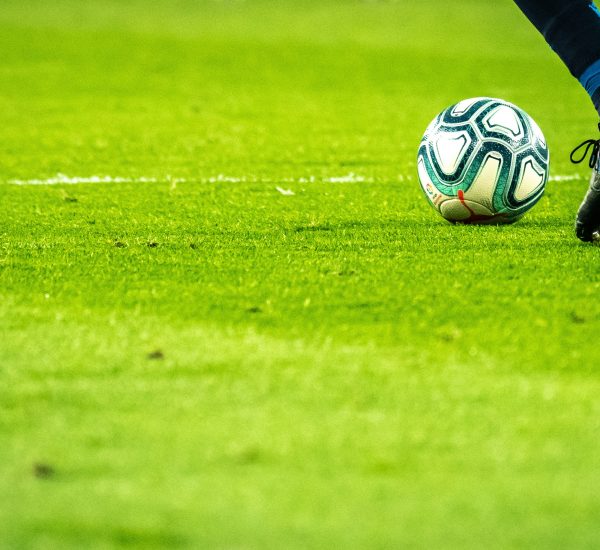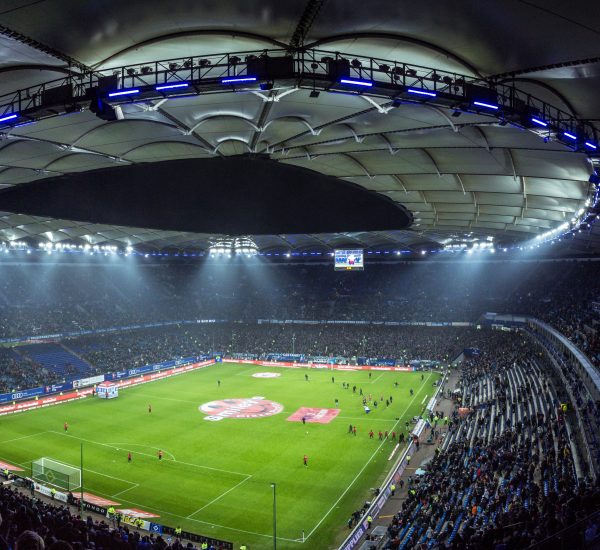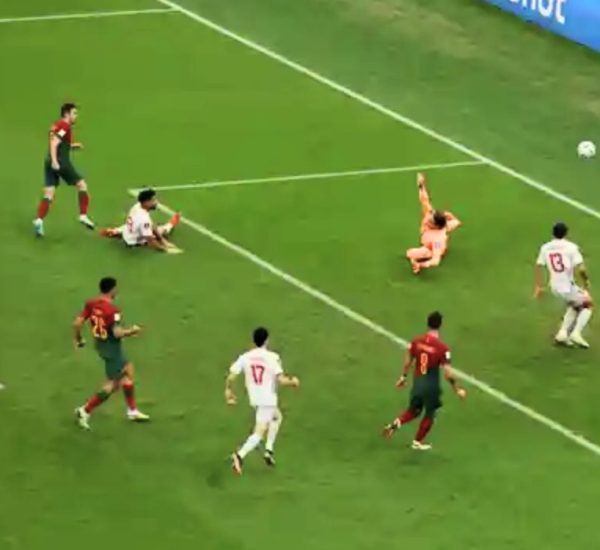Borussia Dortmund, often referred to as BVB (Ballspiel-Verein Borussia) and nicknamed Die Schwarzgelben (The Black and Yellows), are considered the second most successful club in Germany.
Dortmund has a reputation for having one of the best and most passionate fan bases in European soccer, epitomised by their famous ‘Yellow Wall,’ one of the stands in their home ground: Westfalenstadion. This vast 81,365 capacity arena makes it the largest stadium in Germany and means the club has the highest average attendance in European soccer.
BVB are known for their attacking soccer philosophy, making them a famous club for many soccer fans worldwide.
| Full Name | Ballspielverein Borussia 09 e. V. Dortmund |
|---|---|
| Founded | December 19, 1909 |
| Nickname | Die Schwarzgelben (The Black and Yellows) |
| Stadium | Westfalenstadion |
| Capacity | 81,365 |
| President | Reinhard Rauball |
| Manager | Marco Rose |
| League | Bundesliga |
Formation Of Borussia Dortmund
The club was formed in 1909 by 18 youths who broke away from the Catholic Church-sponsored soccer team in the City, angered by the management and treatment they received from the Chaplain.
The name ‘Borussia’ was taken from a local beer brewery, ‘Borussia Beer.’ The new club sought admittance to the West German FA, donning their blue and white stripes with a red sash. However, it was not until 1913 that the team started to wear the famous black and yellow jersey.
Solving The Financial Issues
In 1924, the club members invested and developed a council-owned ground into an 18,000-capacity stadium named “Borussia Sport Park.” Following this, the board continued investing in the club, resulting in mounting debts and financial difficulties.
Relegation followed, and the board’s financial scandal got exposed. However, after stepping down from the board, Heinz Schwaben personally paid the debts in full, rescuing the club from the brink of collapse.
Near Success And First Taste Of Silverware
BVB came close to their first major silverware in 1949, reaching the final of the Oberliga West, which was Germany’s First division, only to lose to VfR Mannheim. It took another seven years to finally clinch a major trophy when BVB beat Karlsruher SC 4-2 to win the 1956 First Division.
Borussia retained their Champions status when they defeated Hamburger SV 4–1 the following year. BVB was becoming one of Germany’s biggest clubs but didn’t win their third title until 1963. It would be the last ‘German Football Championship’ before the Bundesliga got introduced, the first professional soccer league in Germany.
BVB competed in the 16-team league in its debut season, scoring the first goal in the newly formed Bundesliga. They were decent contenders, finishing 4th in the inaugural Bundesliga season and 3rd the following year. At the end of that second season, in 1965, BVB claimed their first German Cup – The DFB-Pokal.
This qualified BVB for the prestigious European Cup Winners Cup in 1966, where, as underdogs, they overcame Liverpool 2-1 after extra time. Borussia Dortmund looked set to add the Bundesliga trophy to their great season. But after losing four out of their last five games in the league, they finished second, just 3 points behind eventual winners 1860 Munchen.
Downfall Of Dortmund
The wait for a Bundesliga title would be longer than they thought. Both off-field and on-field problems characterised the 1970s. As a result, BVB suffered relegation to the Second Division in 1972, where they would remain for four years.
Despite this, Borussia Dortmund moved into the famous Westfalenstadion, which was built for the 1974 World Cup, but then awarded to BVB. The club earned its return to Bundesliga in 1976, but this did not end the financial problems, and Dortmund continued to struggle in the league.
In 1986, BVB narrowly avoided relegation again after finishing 16th, scraping through in the relegation play-off against Fortuna Köln.
The appointment of Horst Köppel as the new manager resulted in immediate success. In 1989, 23 years after their last major trophy, Borussia Dortmund won their second DFB-Pokal when they beat Werder Bremen 4-1 in the final. Dortmund followed this up with a DFL-Supercup victory, beating Bayern Munich 4-3.
The Golden Age Of BVB
After only three years at the helm, Köppel was replaced by Ottmar Hitzfeld. It was the beginning of Dortmund’s ‘Golden age’.
Hitzfeld almost guided BVB to a Bundesliga title in his debut season, finishing second and missing out on the last day to Stuttgart. The following season, Dortmund reached the UEFA Cup Final and faced Juventus.
The Black and Yellows approached the final as underdogs, and it showed when they were humiliated 6-1 over two legs. Despite this, Dortmund continued to improve, aided by the financial gains that came with a European cup run.
In 1995, Borussia Dortmund finally won the league, their first German league title since its reform to the Bundesliga. Star players Michael Zorc and Matthias Sammer led them to back-to-back success, as they retained the title in 1996 and won successive DFL-Supercups.
Dortmund Are European Kings
The 1996-97 season saw Dortmund show their quality on the European stage once again. After overcoming Manchester United in the Semis, BVB reached the UEFA Champions League Final and faced Juventus in a European final.
It was a chance for redemption, but a Juventus side full of stars, such as Zidane, Del Piero, Deschamps, and Vieri, made things look complicated. Nevertheless, Dortmund came out with a 3-1 win. A brace from Karl-Heinz Riedle and a memorable goal from Dortmund-born and one-club man Lars Ricken sealed the victory. His brilliant chipped finish came just 16 seconds after he came on as a substitute.
It was BVB’s first Champions League trophy. After that, they went on to win the Intercontinental Cup after overcoming Cruzeiro by 2-0. Thus, they were officially the 1997 Champions of the World.
Going Public In The 21st Century
In 1998, Dortmund legend Mathias Sammer retired due to injury. He joined the management in 2000, and in 2002, he became the first person to win the Bundesliga both as a player and manager.
A late surge saw BVB dramatically clinch their third Bundesliga title on the last day of the season. Sammer almost secured a league and European double, but once again, Dortmund fell short in the UEFA Cup Final.
Financial problems hit Dortmund again in 2005. Having been the first German club to be publicly listed in 2000, the economic downturn on the Frankfurt Stock Exchange put BVB on the brink of bankruptcy. It was mainly due to a series of poor performances on the pitch and a failure to reiterate their European dominance.
Rivals Bayern Munich helped BVB with a loan of€2 million. Moreover, to ease their financial problems, the club renamed its stadium “Signal Iduna Park.” Besides, pay cuts were also imposed on players and staff. However, despite improving financially, the results on the pitch remained poor. In three consecutive seasons, BVB finished in mid-table positions.
Klopp Era At Dortmund
In 2008, BVB hired former Mainz manager Jürgen Klopp. They showed gradual improvements by qualifying for European competitions once again. BVB tasted glory in 2010-11, showcasing their high-tempo, high-pressing style with a talented squad of young players.
Klopp retained the title in 2011-12 even more emphatically, setting a new record with 81 points. Dortmund smashed rivals Bayern Munich 5-2 in the DFB-Pokal final to secure a domestic double. Klopp’s recruitment strategy combined with Dortmund’s development regime proved successful, with stars such as Lewandowski, Gotze, Hummels, and Gundogan.
However, the points record didn’t last long as Bayern Munich earned 91 points the following season, taking the title off Dortmund, who finished 2nd. Games between the BVB and Bayern Munich are named ‘Der Klassiker’ (The Classic), and the rivalry between the clubs was reaching its most intense as they met in the final of the Champions League in 2013.
The 2013 Champions League Final
The final at Wembley saw Arjen Robben score a late winner for the treble-winning Bayern Munich side. Bayern’s dominance continued in German soccer, as BVB finished second for the second consecutive season. They lost another Der Klassiker in the 2014 DFB-Pokal final.
Dortmund did claim the 2013 and 2014 DFL-Supercups, but they would be the last significant trophies during the memorable Klopp era.
After losing many key players, the 2014-15 season saw BVB struggle. The club sat bottom of the German league for much of the season in an unbelievable downturn in form. As a result, Klopp announced he would be walking away at the end of the season.
A late surge saw them eventually finish seventh and reach another DFB-Pokal final, which they lost again in Klopp’s last game.
Thomas Tuchel And Dortmund
Thomas Tuchel took over, and his first season saw Dortmund bounce back, performing brilliantly in the Bundesliga but still falling short of another exceptional Bayern Munich season.
Dortmund faced Jurgen Klopp’s new side, Liverpool, in the Quarter-Finals of the Europa League, losing 4-3 after a dramatic comeback at Anfield. The club made it to a third successive DFB-Pokal but went down on penalties to Bayern Munich.
Bombing During The Champions League
On April 11, 2017, three explosions occurred near the BVB team’s bus. Dortmund had to face AS Monaco in a Champions League match at the Signal Iduna Park. Defender Marc Bartra was injured during the attack.
The motive of the attack was to drive down Dortmund’s share price and profit in the process. However, the game eventually went ahead, and BVB crashed out of the Champions League, losing to Monaco over two legs.
Dortmund reached the DFB-Pokal final for the 4th time in a row, this time winning it thanks to an Aubameyang goal.
Tuchel stepped down as manager and was replaced by Peter Bosz. The gaffer led an unsuccessful season in the Bundesliga and was relieved of his duties midway through the campaign.
Lucian Favre took over the club in the summer of 2018. He helped Dortmund challenge for the title till the last game of the season. However, Bayern Munich ultimately finished the campaign as Champions.
The Future Of Borussia Dortmund
The 2019-20 season, interrupted by Coronavirus, saw Bayern win their 8th consecutive Bundesliga. They have won it every year since BVB’s last success in 2012 under Klopp. Borussia Dortmund were their closest challengers again, finishing second.
With the signing of striker Erling Braut Haaland, the club and fans have high hope to achieve success again soon.



